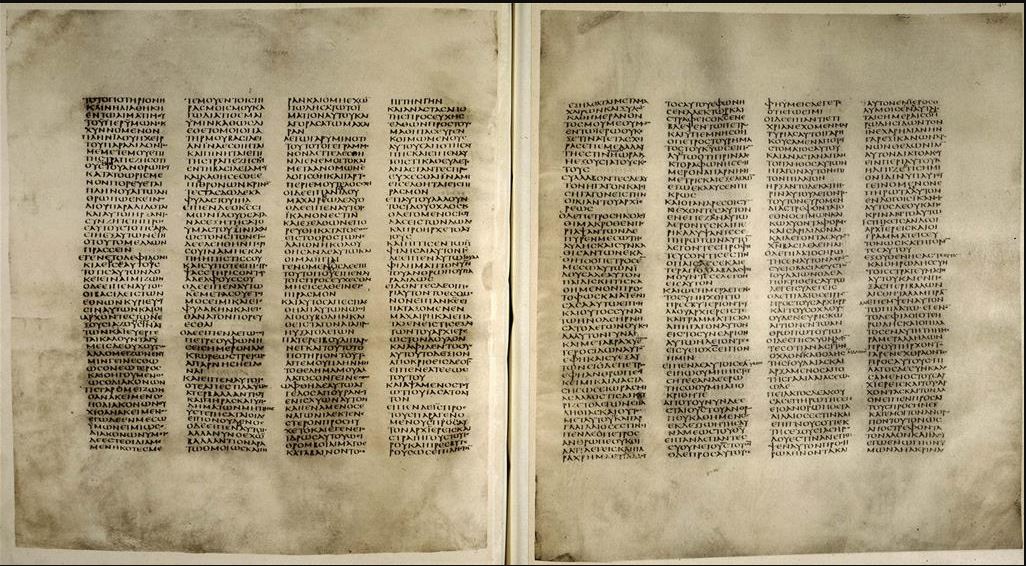
Matthew 28:19 – THE FALSE TRINITARIAN BAPTISMAL FORMULA
Matthew 28:19 [English Standard Version - ESV] Go therefore and make disciples of all nations, [baptizing them in the name of the Father and of the Son and of the Holy Spirit], (Yeshua's words in purple); (Trinitarian words in grrey)
There is no such teaching anywhere, not a single Trinitarian formula, that states people were baptised in the name of the Father, the Son and the Holy Spirit in the whole Bible. The disciples and the followers of Yeshua never baptised with this Trinitarian formula, but only in the name of Yeshua:
Acts 2:38 – in the Name of יהושע{Yehoshua} Messiah [The Scriptures – TS]
Acts 8:12 – Name of יהושע{Yehoshua} Messiah [TS]
Acts 8:16 – in the Name of the Master יהושע{Yehoshua}. [TS]
Acts 10:48 – … immersed in the Name of יהושע{Yehoshua} Messiah. [TS]
Acts 19:5 – … immersed in the Name of יהושע{Yehoshua} Messiah. [TS]
Galatians 3:27 – immersed into Messiah. [TS]
Romans 6:3 – immersed into Messiah יהושע{Yehoshua} [TS]
(Saint) Jerome, one of the so-called ‘Fathers of the Church’ had access to a copy of the original Hebrew Gospel of Matthew and did not include the ‘Trinitarian formula’ either.
Joseph Ratzinger (Pope Benedict XVI) says the following regarding the origin of the chief Trinity text of Matthew 28:19:
“The basic form of our profession of faith, took shape in the course of the second and third centuries in connection with the ceremony of baptism. So far as its place of origin is concerned, the text (Matthew 28:19) came from the city of Rome”. – The Catholic Encyclopaedia, II, page 263:
“The baptismal formula was changed from the name ‘Jesus Christ ‘to the words ‘Father, Son and Holy Spirit’ by the Catholic Church in the second century”.
So we have first hand evidence that the Catholic Church changed the wording of Matthew 28:19 to support their beliefs in a ‘trinity’. There are countless historical quotes , from theologians, and other writers who all agree and confirm Matthew 28:19 was altered.
Acts 7:59 – SUBSTITUTION OF THE TRUE WORD ‘LORD’ FOR THE FALSE WORD ‘GOD’.
If we look at the Trinitarian translations of Acts 7:59 we find the following:
• Jubilee Bible 2000 – And they stoned Stephen calling upon God and saying, Lord Jesus, receive my spirit.
• King James 2000 Bible – And they stoned Stephen, calling upon God, and saying, Lord Jesus, receive my spirit.
• American King James Version – And they stoned Stephen, calling upon God, and saying, Lord Jesus, receive my spirit.
These translations, and other similar ones, deceive people into believing that the Messiah is ‘God’.
THE WORD 'GOD' DOES NOT APPEAR IN GREEK TEXTS
Below is the Greek interlinear:
| kai kai G2532 Conj. AND |
eliqoboloun elithoboloun G3036 vi Impf Act 3 Pl. THEY-STONE-CAST(past) they-pelted-with-stones |
ton ton G3588 t_ Acc Sg m THE |
stefanon stephanon G4736 n_ Acc Sg m Stephen |
| epikaloumenon epikaloumenon G1941 vp Pres Mid Acc Sg m ON-CALLING one-invoking |
kai kai G2532 Conj AND |
legonta legonta G3004 vp Pres Act Acc Sg m SAYING |
kurie kurie G2962 n_ Voc Sg m MASTER! or LORD ! |
| ihsou iEsou G2424 n_ Voc Sg m JESUS ! |
dexai dexai G1209 vm Aor midD 2 Sg RECEIVE receive-you ! |
to to G3588 t_ Acc Sg n THE |
pneuma pneuma G4151 n_ Acc Sg n SPIRIT |
| mou mou G3450 pp 1 Gen Sg OF-ME |
Accordingly Acts 7:59 would read as: And (as) they were stoning Stephen, he was calling out and saying, Lord Jesus receive the spirit of me
We can find more evidence in the Codex Sinaiticus, one of the oldest complete Bibles available to us
Acts 7:59 [English translation of the Codex Sinaiticus]
59 and they stoned Stephen, calling on the Lord and saying: Lord Jesus, receive my spirit.
The Following Greek Texts all have «Κύριε Ἰησοῦ» pronounced «kurie iEsou» translated Master or Lord Jesus (Yeshua) :
- Stephanus Textus Receptus 1550 – «Κύριε Ἰησοῦ» – Lord Jesus (Yeshua)
- Tischendorf 8th Edition 1869-72) – «Κύριε Ἰησοῦ» Lord Jesus (Yeshua)
- Westcott and Hort 1881- «Κύριε Ἰησοῦ» Lord Jesus (Yeshua)
- Westcott and Hort / [NA27 variants] – «Κύριε Ἰησοῦ» Lord Jesus (Yeshua)
- Scrivener’s Textus Receptus 1894 – «Κύριε Ἰησοῦ» Lord Jesus (Yeshua)
- Nestle Greek New Testament 1904 – «Κύριε Ἰησοῦ» Lord Jesus (Yeshua)
- Greek Orthodox Church 1904 – «Κύριε Ἰησοῦ» Lord Jesus (Yeshua)
- RP Byzantine Majority Text 2005 – «Κύριε Ἰησοῦ» Lord Jesus (Yeshua)
- SBL Greek New Testament 2010 – «Κύριε Ἰησοῦ» Lord Jesus (Yeshua)
Trinitarians substituted the word ‘Lord’, meaning ‘the Lord Jesus’ for the false word ‘God’, to deceive people into believing Jesus is ‘God’. Trinitarian scholars and commentators, such as Matthew Henry, do not mention this change and instead are silent, thus deceiving millions.
It is no surprise that many Trinitarians still do not know the truth, as they live solely by the many false Trinitarian translations such as those found in the King James Version and do not do any research into better translations in order to find the truth. Therefore, they remain deceived.
The English translation of the Codex Sinaiticus renders these verses as
1 John 5:7 [ English Translation of the Codex Sinaiticus - Codex Sinaiticus Project] 7 For they that testify are three, 8 the Spirit, and the water, and the blood, and the three are one
7 Because there are three who bear witness (in heaven, the Father, the Word, and the Holy Spirit: and these are one. 8 And there are three that bear witness in the earth) the Spirit, and the water, and the blood. And the three are in agreement. (The Trinitarian addition in grey)
Research by Simon Brown; The Scriptures Explanatory Notes; Nazarene Notes